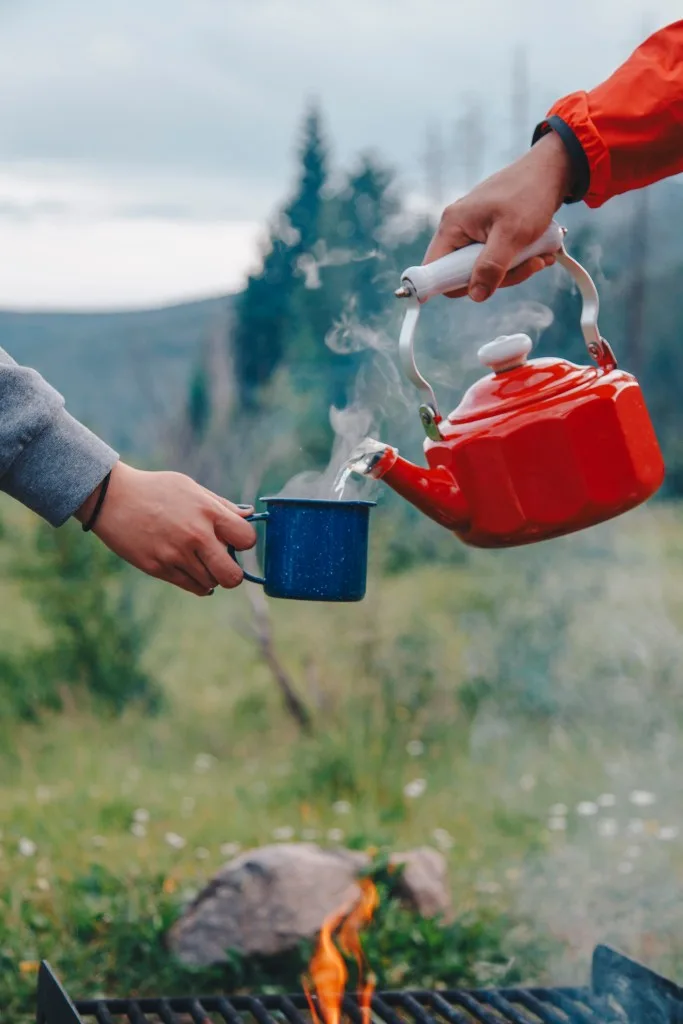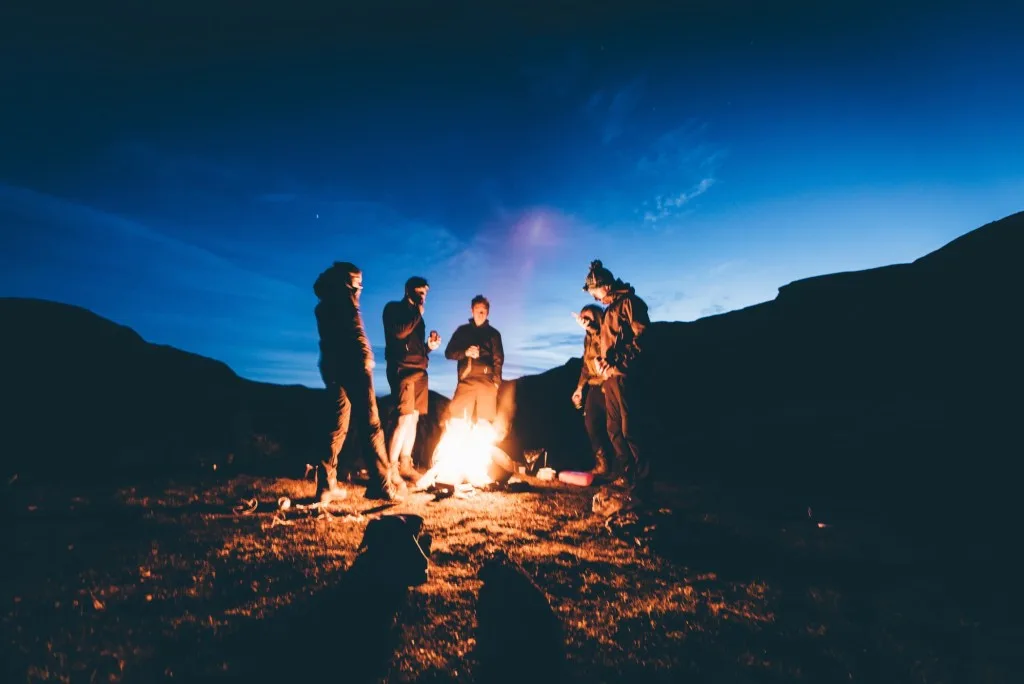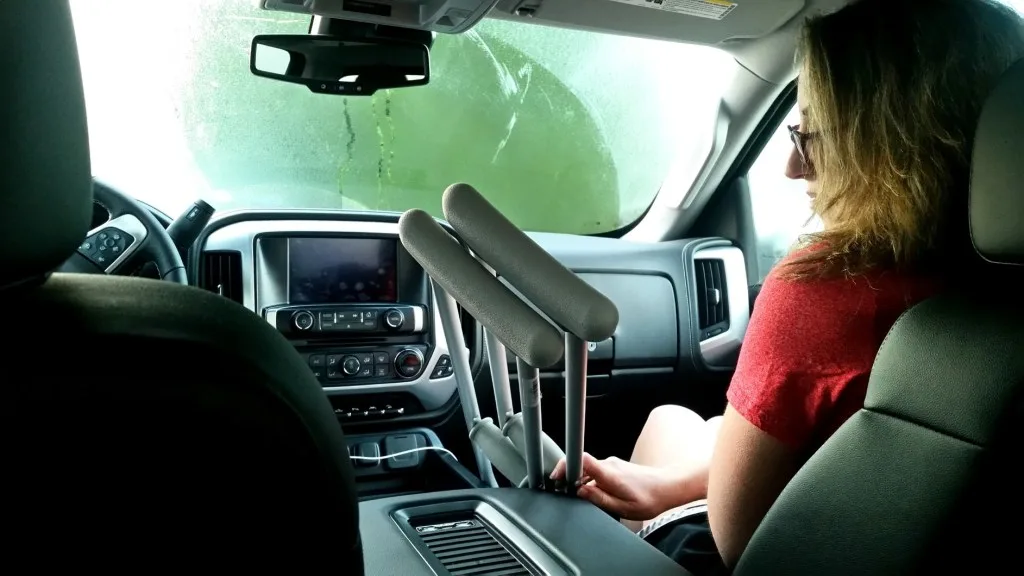Whether an injury requires a trip to the emergency room or not, it can undoubtedly bring your RV adventures to a screeching halt.
One of the quickest ways to ruin an RV trip is to get injured. If you want to avoid spoiling your future adventures, this article is for you!
We’re looking at a handful of the most common injuries people experience while RVing.
Let’s get started!
What Are Common Injuries In Outdoor Activities?
One of the most common injuries during outdoor activities is a sprained ankle. This is especially common when hiking as loose gravel and uneven terrain can increase the chances of spraining an ankle. It’s also easy for the natural beauty around you to cause you to lose focus of watching where you’re stepping.
Those who spend a generous amount of time doing outdoor activities often experience cuts, scrapes, and blisters. Whether these are life-threatening or not, they can be tremendously painful and take a while to heal. These can occur due to a fall, brushing against a prickly bush, or wearing inappropriate footwear. It can cause the rest of your time outdoors to be miserable.
One of the most preventable outdoor injuries that many individuals experience is dehydration. You should always have plenty of water if you’re planning outdoor activities, especially during warmer weather.
Outdoor activities in mild weather can also lead to dehydration if you’re not careful and drinking water. Dehydration can lead to headaches, weakness, and dizziness. Extreme cases can lead to heat exhaustion or heat stroke, both of which can send you to the ER in a hurry.
These injuries can occur while you’re RVing. However, other things can cause harm even more often than the above.

Is It Unhealthy To Live In A Camper?
Living in a properly maintained RV can be extremely healthy. This is especially true if you’re changing campsites and moving your camper regularly. Setting up and tearing down camp is a physically demanding task, which can help keep you moving and in better shape. Regularly changing your scenery also encourages you to be more active by getting out and exploring.
However, living in a rig that isn’t being properly maintained can be extremely dangerous. Water damage from the roof and plumbing system can lead to mold growing throughout your camper. This can create an incredibly unhealthy situation and potentially cause severe health conditions.
5 Surprising Causes of Injury While RVing
It’s easier to enjoy RVing when everyone is in good health. Here are five surprising ways RVers get hurt and how you can prevent them. Let’s take a look!
#1 Sickness from Unfiltered Water Lines
About: You need water to survive, but you can’t just drink any water you find. Unfiltered water can contain bacteria, sediments, and other harmful chemicals that can cause severe illness when consumed. You’ll use the water in your RV for cooking, showering, and brushing your teeth, and if the water is not clean, it can cause some major internal injuries.
How To Prevent It: A mistake many RVers make is using non-potable water to fill up their RV tanks. This is often non-potable because it hasn’t been tested or is not held to the strict standards required for drinking water. You should always make sure the water you’re putting into your water system is safe for human consumption.
Also, even if you fill your rig’s water supply with potable water, there’s still a danger if your water lines aren’t thoroughly cleaned. Cleaning your camper’s water system should be a standard part of your bi-annual maintenance schedule.
Check the documentation that came with your RV for the recommended chemical solutions and any instructions for completing the process. Sanitizing your water lines helps eliminate any bacteria or other harmful germs from causing issues in your water.
Lastly, it’s a good idea to invest in a filtration system if you plan to use your rig regularly. This can serve as an additional layer of protection and help minimize the chances of any internal injury arising from consuming unsafe water while you’re RVing.
Pro Tip: Keep your water fresh and clean with these tips on How to Clean Your RV Fresh Water Tank.

#2 Animal Bites
About: Animals can look cute and cuddly, but they’re also very unpredictable. We’re not just talking about wild animals either; some personal pets can behave in unexpected ways when confined in a small space. While some animal bites can require minor first aid treatment, larger and more aggressive animals can cause bites that will require serious medical attention.
How To Prevent It: You should never feed wild animals. This not only helps protect the animals but you as well. People often get bit by wild animals when the animals smell their food and visit their campsite or picnic spot.
The animals may not be as gentle as you’d like when you’re handing them food, or they could become aggressive when you run out of food. It is often illegal to feed wild animals in parks as the animals become dependent on humans for food and lose their instinct to forage for food.
If you’re a dog owner, have plenty of space for them, especially for eating. Some dogs can get very territorial when it comes to their food. You’ll want to make sure you have plenty of space for your pets to move around your RV and have space while eating. If they are high-energy dog breeds, you’ll also want to make sure they’re getting plenty of exercise.
Pro Tip: Some animals in National Parks carry the plague.
#3 Burns
About: Whether it’s a sunburn or cooking, burn injuries are common while RVing. Burns are not only painful, but the pain can linger for quite some time. If your burns are minor, you’ll likely be able to treat them from the campsite with burn creme. However, if the burns are incredibly severe, you’ll need to seek professional medical assistance.
How To Prevent It: You can prevent sunburns by wearing proper sunscreen and clothing while outdoors. It’s a good idea to carry sunscreen in your hiking backpack. The best way to avoid sunburn is to be proactive with applying sunscreen.
You don’t want to wait until you feel like you’re getting sunburnt to start applying. If you do, it’s likely too late, and your skin is already burning. Apply sunscreen before heading out for the day, and then reapply regularly throughout the day.
Avoiding burns while cooking is much more difficult to avoid. No one likely sets out trying to get burned while cooking. It’s often the result of being in a hurry or not paying attention to where you’re reaching or what you’re touching. The best way to avoid these burns is to make sure you’re entirely focused on the task at hand while cooking.

#4 Skin Rashes
About: Skin rashes while RVing are often a sign of some sort of allergy rather than an actual injury. This could be from something inside or outside the rig. If you develop a skin rash, you likely shouldn’t panic. Rashes are a standard part of life and are often easily treatable. However, if the rash doesn’t go away or worsens, you’ll need to seek medical attention.
How To Prevent It: The best way to prevent skin rashes while RVing is to stay away from any plants or other items that could be causing the reaction. If you’re not aware of any allergies, make a note of what plants are around and look for any consistency when the rash appears.
You may not be aware that you’re naturally allergic to a plant on the other side of the country from where you’ve spent most of your life.
If you notice that the rash occurs when you spend more time in your camper, it can be a serious situation. Developing a rash can signify mold and mildew in your RV. Look under mattresses, in closets, and other areas where air doesn’t circulate well. These are common areas where moisture occurs and can result in mold.
If you discover mold in your RV, it can be very serious. Using dehumidifiers when wet and humid conditions can help lower the humidity levels in your rig and lower your risk of mold. If you continue to experience the rash, you’ll want to have your entire RV inspected.
#5 Falling on RV Steps
About: The entryway is the scene of many injuries while RVing. You’ll pass through the door of your rig thousands of times while adventuring. Missing a step or tripping can cause a serious situation.
Whether you’re coming or going, falling up or down the hard metal steps isn’t a fun experience. It’s especially not fun if you’re holding items in your hands. These types of falls can cause severe damage to your body and camper.
How To Prevent It: The best way to prevent falling on your RV steps is to ensure you have a set of high-quality steps. You want to have enough wide steps that you’re able to navigate them with ease. Some RVers install after-market handrails to help keep their balance while navigating the stairs.
If you’re not happy with the stairs that came with your rig, you can upgrade them to stairs that are more comfortable and easier to use.
Also, never overdo it when it comes to carrying things up or down your stairs. Having your hands full and trying to balance items is a recipe for disaster when you’re trying to maneuver a set of stairs. Make multiple trips instead of being the hero and conquering it all in the least amount of trips.
It’s hard to navigate stairs if you can’t see them. Proper lighting can also be helpful, especially early in the morning or late at night. If you’ve been staring at the bright fire for a few hours, your eyes might have trouble finding the stairs if the rest of your campsite is dark. Keep a light on near the stairs, or use some rope lights on the ground to help you safely walk your way into your RV.

How Can Camping Injuries Be Prevented?
Not all camping injuries can be prevented. However, taking your time and having the proper tools can go a long way in helping prevent major injuries. Many injuries occur when we’re in a hurry and trying to get something done quickly. We make mistakes, and sometimes they can be costly and painful mistakes. You can avoid many injuries by slowing down and focusing on the task at hand.
Conversations and technology are major distractions for many of us. We can be distracted by trying to listen to a podcast, reading something on social media, or being too involved in a conversation with a fellow camper. These distractions might seem slight, but they can cause us to make major mistakes that can lead to injuries.
What First Aid Should I Take Camping?
You should always take a first aid kit with you when camping. You’ll want to have some of the basic necessities such as bandages, an instant cold compress, scissors, thermometer, tweezers, antibiotic ointment, pain relievers, and gauze. These basics can go a long way in helping take care of smaller wounds or providing aid until professionals can arrive for larger wounds.
Many big-box retailers sell first aid kits specifically for camping. They provide the basics in an easy-to-carry kit. You should check it each time before venturing out to confirm it’s full of supplies and that you have everything you might need for the trip. Take the time to familiarize yourself with the items so you know what’s in your kit so you can best serve the injured party when needed.
Pro Tip: Stay safe while camping by having everything packed on our First Aid Checklist You Need For Camping.
A Little Prevention
Setting yourself up ahead of time by properly maintaining your RV and resolving possible safety issues can go a long way toward reducing injuries. But, just in case, we highly recommend you keep a good first aid or trauma kit on board.
Have you ever been injured while RVing? Tell us your story in the comments below!
Discover the Best Free Camping Across the USA
To be honest with you, we hate paying for camping. There are so many free campsites in America (with complete privacy).
You should give it a try!
As a matter of fact, these free campsites are yours. Every time you pay federal taxes, you’re contributing to these lands.
Become a FREE CAMPING INSIDER and join the 100,000 campers that love to score the best site!
We’ll send you the 50 Best Free Campsites in the USA (one per state). Access the list by submitting your email below:
Trauma kits are great options for a first aid kit! They usually have splints and more help for large wounds. They cost more but are definitely worth it if you’re farther from help or have no way of calling for help.